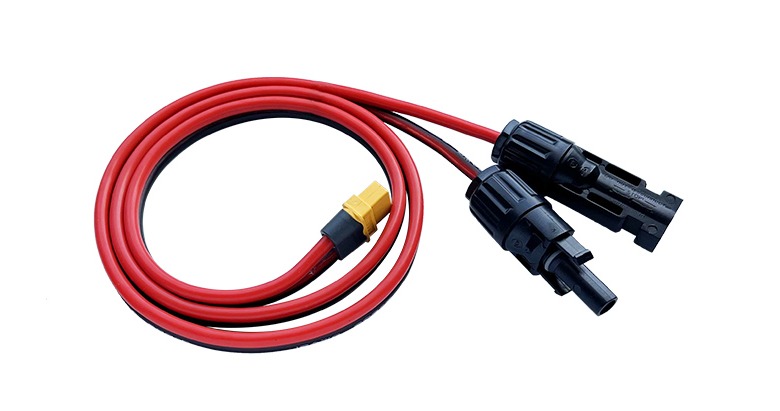When setting up a solar panel system, understanding the various types of connectors and cables is crucial for ensuring a safe, reliable, and efficient installation. These connectors serve as the link between solar panels, inverters, and other components, and they play a vital role in transmitting the power generated by the solar cells. Different types of connectors are used depending on the system configuration and the specific needs of the installation. This article explores key connector types, including Solar Panel Connectors and Cables, Solar Panel Adapter Cables, and Micro Inverter Solar Panel Power Cables.
Solar Panel Connectors and Cables
At the core of any solar power system, you’ll find Solar Panel Connectors and Cables. These are the components that connect individual solar panels to each other, or to a central inverter, ensuring that the electricity generated is efficiently transferred through the system. Solar panel cables are specifically designed to withstand outdoor elements, featuring durable insulation and UV-resistant coatings to ensure they remain functional even in harsh weather conditions.
Typically, these cables are made from copper or tinned copper to ensure minimal energy loss and maximum conductivity. Solar panel cables are often paired with specially designed connectors, which can easily be plugged in or disconnected without causing any damage to the system. These connectors are built to handle high-voltage direct current (DC) and are engineered for secure connections that minimize energy loss during transmission. The flexibility and durability of these cables make them ideal for outdoor use, where the system will need to withstand exposure to sun, wind, and rain.
When choosing Solar Panel Connectors and Cables, it’s important to select those that match your specific system’s requirements. The thickness of the cable, the type of insulation, and the maximum current rating are all factors to consider. Selecting the right cables ensures that your system operates at peak efficiency while maintaining safety.
Solar Panel Adapter Cable
Sometimes, solar systems involve components from different manufacturers or designs that require different types of connectors. In such cases, a Solar Panel Adapter Cable becomes an essential tool for compatibility. This type of cable features different connectors on either end, allowing you to connect panels, inverters, or other system components that would otherwise be incompatible.
For example, if you have a solar panel system with one type of connector but need to connect it to an inverter with a different connector type, a Solar Panel Adapter Cable will bridge the gap. These cables offer versatility, allowing you to mix and match components without the need for extensive rewiring or replacement of parts. Solar Panel Adapter Cables are particularly useful in modular solar setups, where you may want to add new panels or components over time.
In addition, adapter cables are often used in situations where system upgrades are necessary. As solar technology evolves, older components might need to be connected to newer models, and adapter cables provide an easy solution to keep everything running smoothly.

Micro Inverter Solar Panel Power Cable
Micro inverters are increasingly popular in solar power installations due to their ability to optimize the output of each individual panel. Unlike traditional inverters, which convert the power from all panels at once, micro inverters work on each panel separately. To connect micro inverters to solar panels, special Micro Inverter Solar Panel Power Cables are used.
These cables are designed to transmit the electricity generated by the solar panels to the micro inverters, which then convert the DC power into usable AC power. The advantage of using micro inverters is that they allow each panel to operate independently, which can increase the overall efficiency of the system, especially in situations where shading or dirt on certain panels may reduce power output.
Micro Inverter Solar Panel Power Cables are typically shorter than traditional cables, as each inverter is mounted directly to the back of a panel. These cables are also designed with durable, weather-resistant insulation to protect against the elements and prevent electrical faults.
The connectors used with micro inverters are specialized to ensure a secure and safe connection to the panels. With micro inverters becoming a preferred choice for residential solar systems, having the right type of cable and connectors is essential for ensuring optimal performance and longevity of the system.
When building or upgrading your solar panel system, selecting the right connectors and cables can make a significant difference in both performance and reliability. Whether using standard Solar Panel Connectors and Cables, employing a Solar Panel Adapter Cable for system flexibility, or setting up Micro Inverter Solar Panel Power Cables for advanced panel-level optimization, these components are essential for creating a robust and efficient solar power solution.